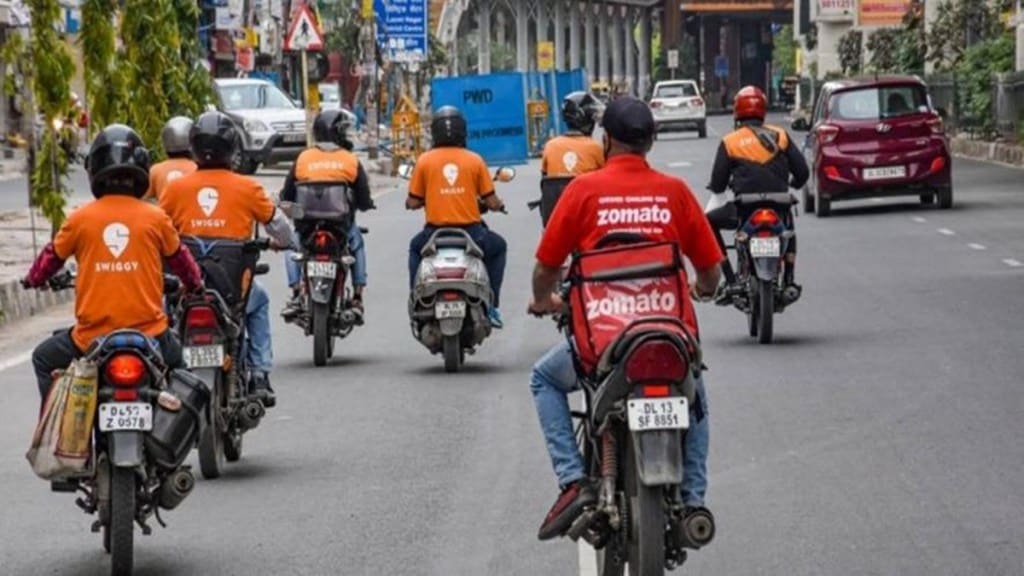The removal of handling and surge fees by Zepto and Swiggy’s Instamart earlier this month has made quick commerce deliveries cheaper for customers, but it has come at a growing cost to delivery partners. Earnings per order, which had already slipped from Rs 34–42 in early 2024 to around Rs 22–30 by the festive season in September, have now fallen further to between Rs 15 and Rs 27 in several high-density zones, according to data from multiple staffing firms.
The decline underscores how fee waivers, meant to attract customers, have intensified pressure on those making the deliveries. The platforms’ response to rising order volumes has been to increase batching, which means, combining multiple deliveries in a single run, which allows them to protect margins but leaves delivery partners with less income per order.
“In dense urban clusters, batched runs now make up a much larger share of deliveries than earlier this year. Riders who handled 22–32 orders a day are now consistently hitting the upper end of that range or exceeding it,” Balasubramanian Anantha Narayanan, vice president at TeamLease Services, told Fe.
The math, however, works against workers. Two orders delivered separately at the current rates could bring in Rs 30–54, but when combined in a batch, payouts are trimmed by Rs 5–10, leaving a total of Rs 20–49. This reduces effective earnings to about Rs 10–24.50 per order, even as partners spend more time navigating multiple addresses and returning to dark stores for their next run.
“Delivery partners don’t receive full base rates for both orders in a batch,” Sachin Alug, CEO of NLB Services, said. “Platforms offer a slightly reduced combined payout with some batch incentives, but those bonuses do not fully compensate for the loss in base earnings,” he added.
Since the fee waivers, many workers have reported more volatile and unpredictable daily payouts. “There’s growing concern that base rates are gradually eroding,” Narayanan said. “We are seeing dissatisfaction in cities where incentives were irregular or lower than expected.”
While Eternal and Swiggy did not respond to queries regarding this, Zepto said that its partner compensation remains stable. “There have been no major changes to delivery partner payouts following the fee waivers,” Vikas Sharma, chief operating officer at Zepto, said. “Our model continues to reward partners based on time and effort per order. Additional incentives for batched deliveries make each trip more efficient and rewarding,” he said.
The all-day surge bonuses that riders once relied on have largely disappeared, replaced by shorter peak-hour incentives. Outside those windows, incomes can dip sharply. In certain zones facing worker shortages, platforms have rolled out temporary adjustments such as store-level bonuses or shift incentives. “Some of these costs are being absorbed by the companies, but much of the adjustment has come through variable pay rather than steady increases in fixed rates,” Narayanan noted.
The squeeze comes as platforms face divergent cost structures. Blinkit, which has not waived its fees, reported relatively steady delivery costs between Rs 16 and Rs 33 over the last eight quarters, averaging Rs 31 per order in Q2 FY26. Swiggy’s Instamart fee waiver kicked in after the company announced its July-September quarter results. Zepto has not disclosed similar figures.
